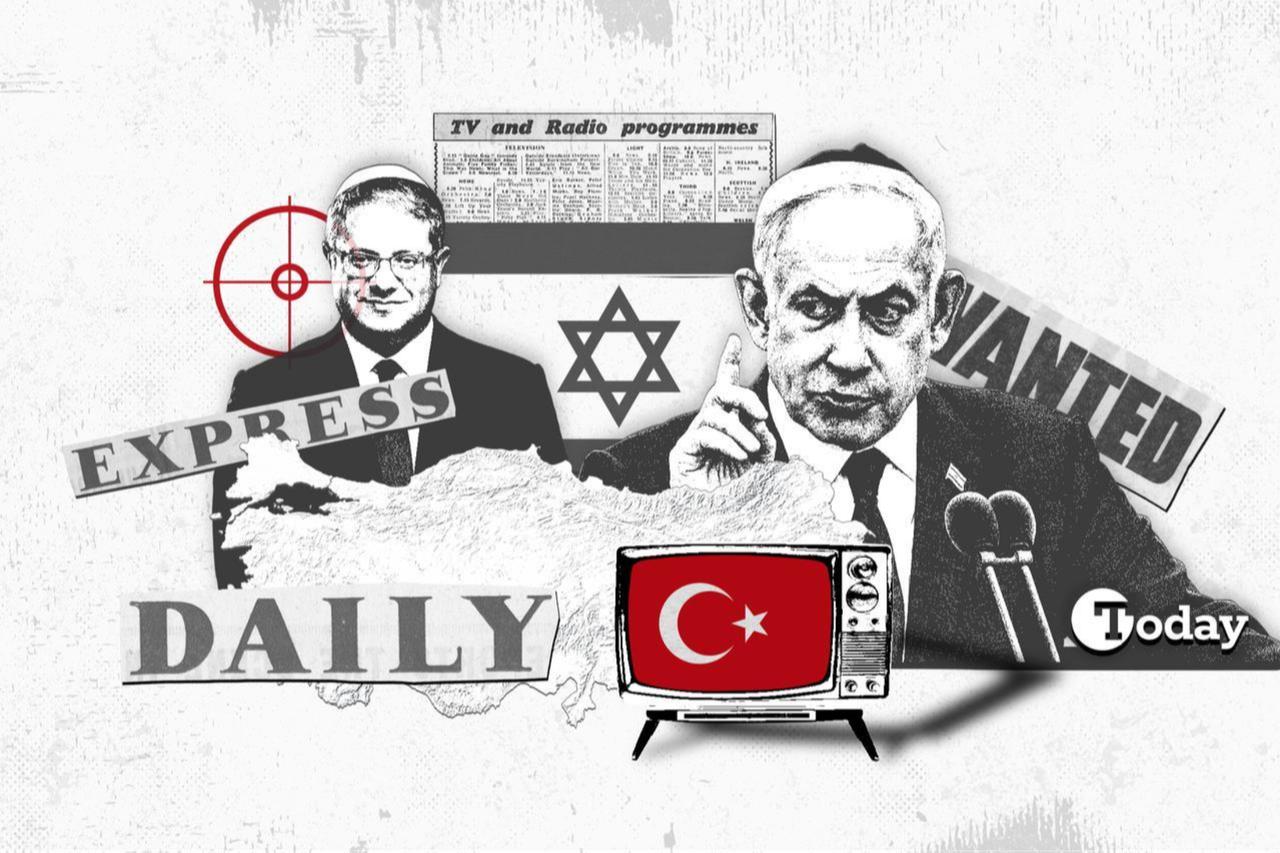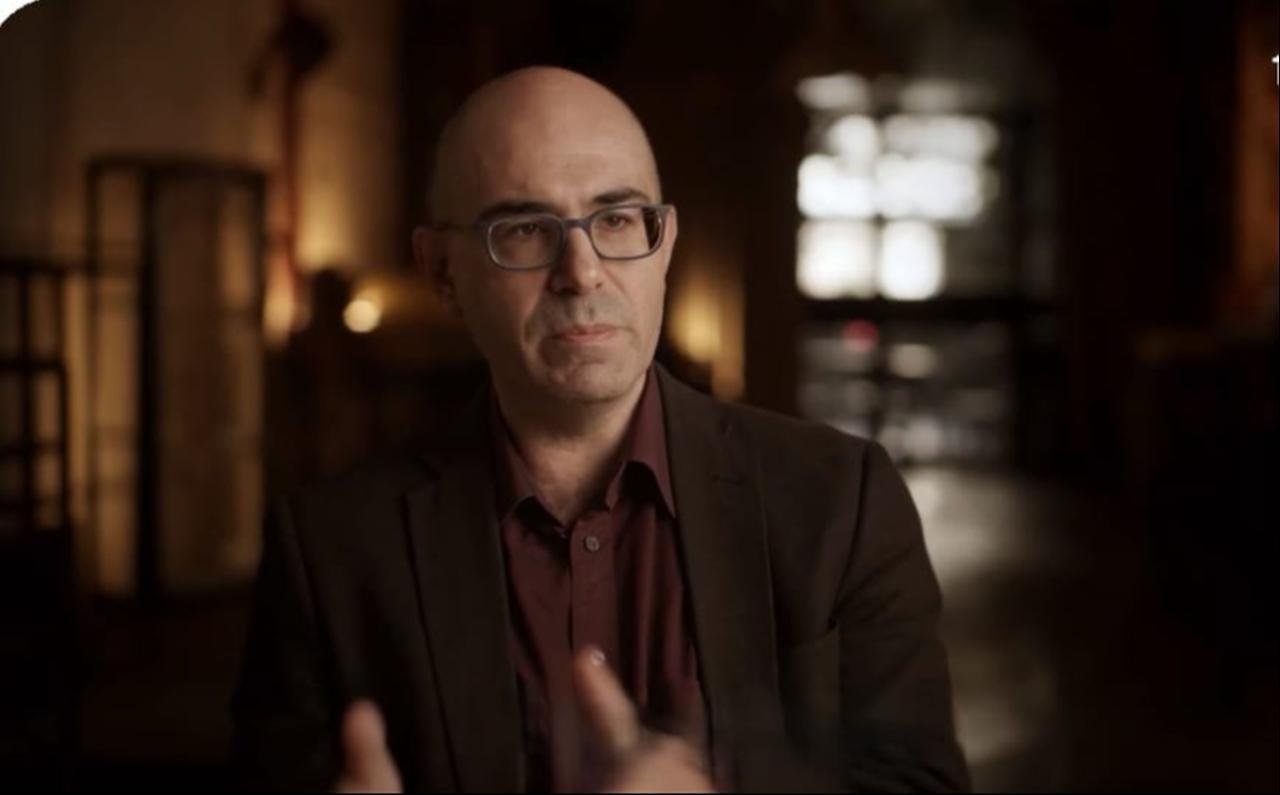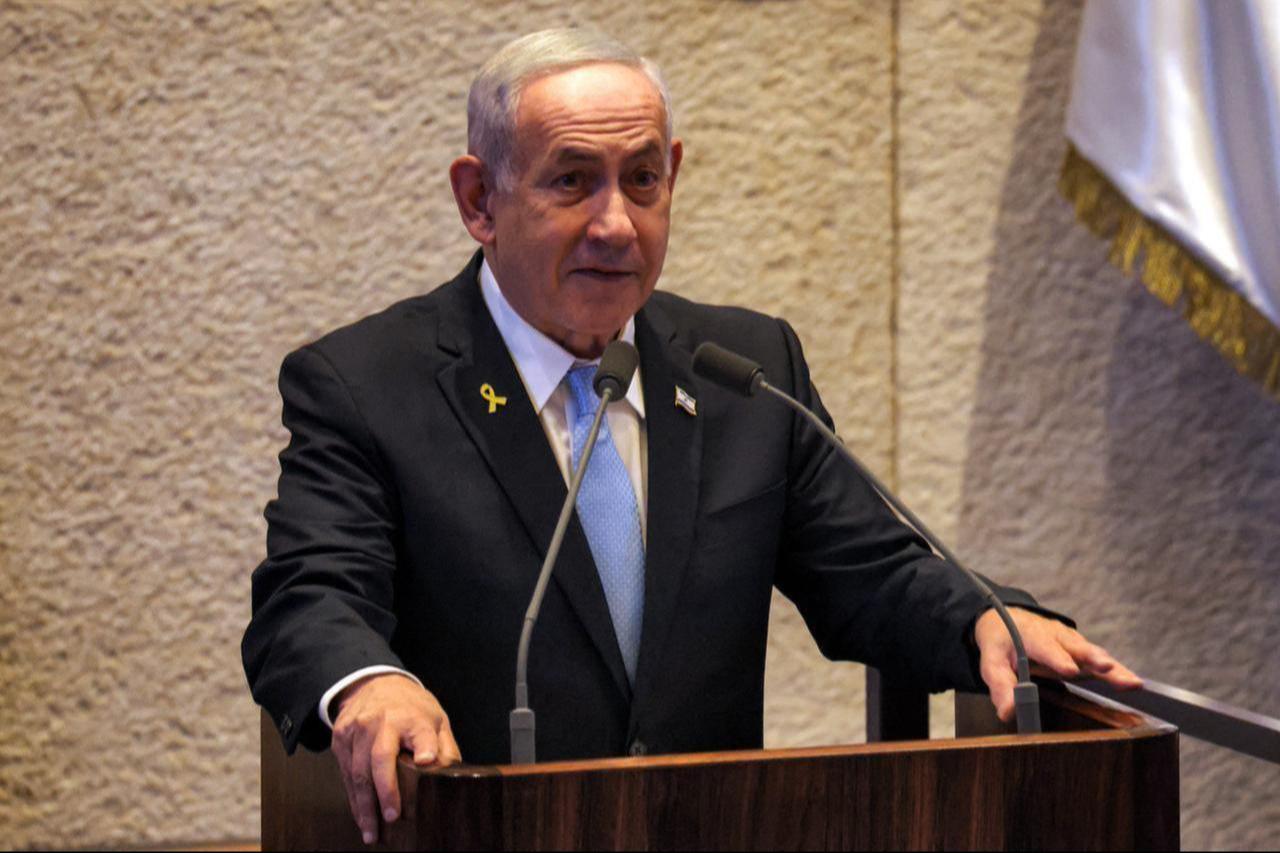
Intelligence historian and Tel Aviv University faculty member Dr. Yaacov Falkov provides a compelling analysis of Israel’s security and intelligence apparatus and of Türkiye's evolving strategic perceptions.
In this exclusive interview, Dr. Falkov examines the role of Israel’s intelligence elites under Israeli President Benjamin Netanyahu, explores how political leadership shapes the nation’s security culture, and explains the factors behind Türkiye's increasingly perceived status as a strategic threat.
Falkov points out that one of the problems Israel is facing is Netanyahu's tendency to surround himself with intellectually and politically 'unchallenging senior officials' in the intelligence and security community, as well as in other parts of the state apparatus.
Israel-Türkiye relations are at their lowest levels since the last decade due to the Israeli genocide in Gaza, which started after the Hamas attack on October 7.

How has the influence of Israel’s security and intelligence elites evolved in political decision-making under Netanyahu?
The influence of the current Israeli security elites should be discussed in two broader contexts: the global trend toward the declining weight of security professionals in relation to state leaders who are becoming (in both the East and the West) increasingly populist and authoritarian; and the increasing efforts of Netanyahu (and his close political and family entourage) to surround himself with senior officials who are intellectually and charismatically inferior to him and far more politically loyal than professional.
Speaking about the first context: the leading figures in the security communities of the West and the East are clearly intellectually, professionally, and politically weaker than their predecessors in past decades. For example, in Russia, the current head of the Foreign Intelligence Service (SVR), Sergei Naryshkin, is a poor imitation of Evgenii Primakov of the 1990s and of their common Soviet-era predecessor, KGB head Yuri Andropov. Accordingly, the last two heads of the Israeli Mossad, Yossi Cohen and David Barnea, seem much politically and bureaucratically weaker than the organization’s founders Reuven Shiloah and Isser Harel, but also than the later Mossad directors, such as Danny Yatom and Meir Dagan.
And here the second context comes into play: Netanyahu, especially in the last decade, has preferred to surround himself with intellectually and politically unchallenging senior officials in every possible area of the state apparatus, and the intelligence and security community was no exception. It is for this reason that his last foreign ministers were professionally inapt and politically totally dependent on the prime minister. It is therefore not surprising that the leadership of the Israeli intelligence and security community shared the same fate.
The latest, clear, and very representative example of the deteriorating position of the intelligence and security elites in the decision-making process during Netanyahu’s tenure was the removal in October 2025 of Tzachi Hanegbi, the head of the National Security Council (Malal) and Netanyahu’s national security advisor. Sources close to the Israeli prime minister claimed that his decision to fire Hanegbi was caused by the latter’s allegedly “too independent” position over Israel’s Gaza strategy. Hanegbi reportedly favored a “partial agreement” with Hamas and opposed a full occupation of Gaza City, a stance considered too conciliatory by Netanyahu’s team. It should be emphasized that Hanegbi has a very good reputation among the Israeli national security professionals and diplomats as a very intelligent and experienced person, and therefore his disappearance from the Malal provoked very negative reactions in these circles.
What institutional or epistemic tensions have emerged between intelligence agencies and Netanyahu’s political leadership?
As far as we know from available sources, like many of his past and present colleagues in the West and the East, throughout his long stay in power, Netanyahu used various informal channels to obtain information and promote secret contacts with foreign countries and their leaders, which bypassed the formal ones, diplomatic and intelligence. Among the most famous examples of this phenomenon is Netanyahu’s use, for almost two decades, of his special envoy, Israeli lawyer Yitzhak Molcho, to maintain confidential contacts with Palestinians, Egyptians, Jordanians, and even Americans. The Ministry of Foreign Affairs, the Mossad and the National Security Council reacted angrily to such a blatant violation of their powers but were unable to change anything.
This pattern of using personally very close and politically highly loyal figures to learn about regional and global realities, combined with growing distrust of the official diplomatic and intelligence reports and analysis, appears to have created a growing epistemological gap between the prime minister and Israeli diplomatic and intelligence professionals. As a result, at times, the latter’s understanding of urgent security threats and preferred responses to them differed significantly from Netanyahu’s. Back in the 2000s, Meir Dagan, already mentioned, actively opposed Netanyahu’s desire to attack Iranian nuclear facilities, arguing that such a move would give the Iranians justification to resort to a nuclear military path and would push Tehran to retaliate through Hezbollah and its other terrorist proxies.
How does Netanyahu engage with intelligence analyses within his Cabinet and Security Cabinet, and what are the implications of the alleged sabotage by far-right ministers of Shin Bet’s efforts against domestic right-wing extremism?
On this topic, we know very little from the currently available open sources. From what is nonetheless available (such as interviews with former senior intelligence and security officials), we learn that over the past decades, like many other state leaders in other places and times, Netanyahu has transformed from an attentive consumer of intelligence and security analysis to an arrogant individual who believes that he understands the strategic situation, both regionally and globally, far better than any of his intelligence chiefs and analysts, even the most senior and experienced of them. Witnesses who attended his Cabinet meetings in recent years described senior intelligence and security figures being asked to “wait outside” while he and his close entourage made fateful decisions.

What is the significance of the friction between Netanyahu and intelligence chiefs like Ronen Bar in understanding the current civil–military and intelligence–political dynamics in Israel?
This friction is a manifestation of the highly tense relationship between the Netanyahu of the 2020s and his current political entourage, which is far more right-wing today than it was at the beginning of his political career. For example, Hanegbi, once one of Likud’s young leaders and later a senior figure in this party and in many Likud governments, was just recently fired from his post as head of the National Security Council—the highest security position in Israel—for being “not right enough” for the new Israeli leadership and expressing views contradicting those of that leadership.
Could you explain in detail the reasons why Israel perceives Türkiye as a strategic threat?
The Israeli security community, including the intelligence leaders of the past, has traditionally regarded Türkiye as a strategic partner against such strategic threats as Iran’s pursuit of regional hegemony, Sunni militant movements represented by al-Qaeda and Daesh and also Russian encroachment into the Middle East. Cooperation in these spheres, highly important for both Israeli and Turkish sides, as well as in supporting Azerbaijan against Moscow- and Tehran-backed Armenia, was preserved even after the tragic incident of the Mavi Marmara flotilla in 2010. Given this, relevant elements of the Israeli intelligence and security community have developed great respect for their Turkish colleagues from MIT and the army. Many of them constantly visited Ankara to discuss topics of mutual interest and promote cooperation.
Moreover, even after 2010 Israeli military industry kept fulfilling its part in the agreements already signed with the Turkish side. In a broader perspective, Israeli society had a very positive attitude toward Türkiye: Israeli tourists visited Antalya and other popular Turkish tourist destinations in large numbers, Turkish goods were very popular in Israeli stores, while Turkish music and TV series enjoyed a very wide Israeli audience.
However, over the past decade, Israel’s political leadership, security community, and society at large developed a sense of a “strategic betrayal” by Ankara. While Israel focused on the constantly growing threat posed by Iran and its multiple regional proxies, as well as by Daesh trying to develop outposts on Israeli northern and southern borders, and simultaneously greatly assisting Baku in its conflict with Yerevan. During this time, Israel suddenly realized that Ankara, its once very close strategic partner, still perceived as such, began developing an overtly hostile attitude toward the Jewish state.
No less important developments occurred in the non-public domain. Turkish diplomats around the world have been instructed to cease all previously warm and mutually beneficial contacts with their Israeli colleagues. This immediately sent the Israelis an unpleasant but clear signal about Türkiye's growing institutional hostility toward Israel. Simultaneously, both the MIT and Turkish General Staff Intelligence Directorate, while still maintaining some contacts with their Israeli counterparts—mostly, in the counterterrorism sphere, and, more recently, concerning the situation in Syria—have regarded Israel and Israeli intelligence and security services as adversaries and began to behave accordingly. This influenced various spheres of these organizations’ activities—from information collection and support for informational-psychological operations to deployment in Syria and relations with Hamas in Türkiye and throughout the Middle East. And again, all this was perceived by the relevant Israeli professional structures as additional manifestations of Ankara’s growing hostile intentions, even more important than the public statements of Turkish politicians.
In this regard, it is worth emphasizing that today there is no major difference between the interpretations of this situation by Israeli intelligence and security professionals and their consumers at the highest political and governmental levels. Just a year ago, when Israel’s military and other relevant structures were focused almost exclusively on Iran and its proxies, and before Turkish recent harsh anti-Israeli statements, structures like the National Security Council in Jerusalem were far less concerned about the perceived Turkish threat, and many veteran analysts and practitioners have rejected more pessimistic assessments that have already been made.
Today, however, the situation is quite different: Israel’s government decision-makers, relevant academic circles, and officials in diplomatic and intelligence-security communities are unanimous in their view of Türkiye as a rapidly growing strategic threat to the State of Israel. It is for this reason that in recent days we have heard strong Israeli objections to the idea of deploying Turkish peace-keeping forces in the postwar Gaza Strip. The main claim is that no one wants Turkish hostile soldiers stationed on the Israeli border and almost inevitably coming into confrontation with the Israel Defense Forces.